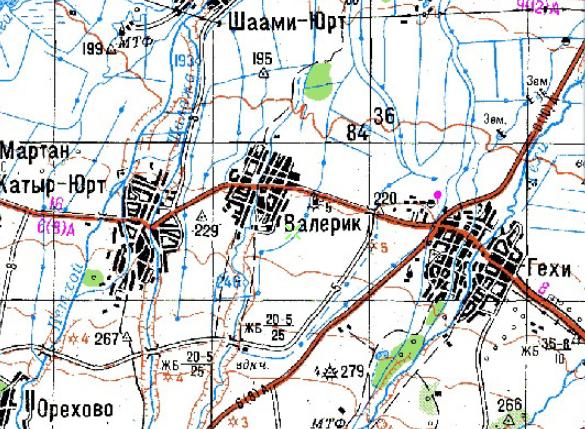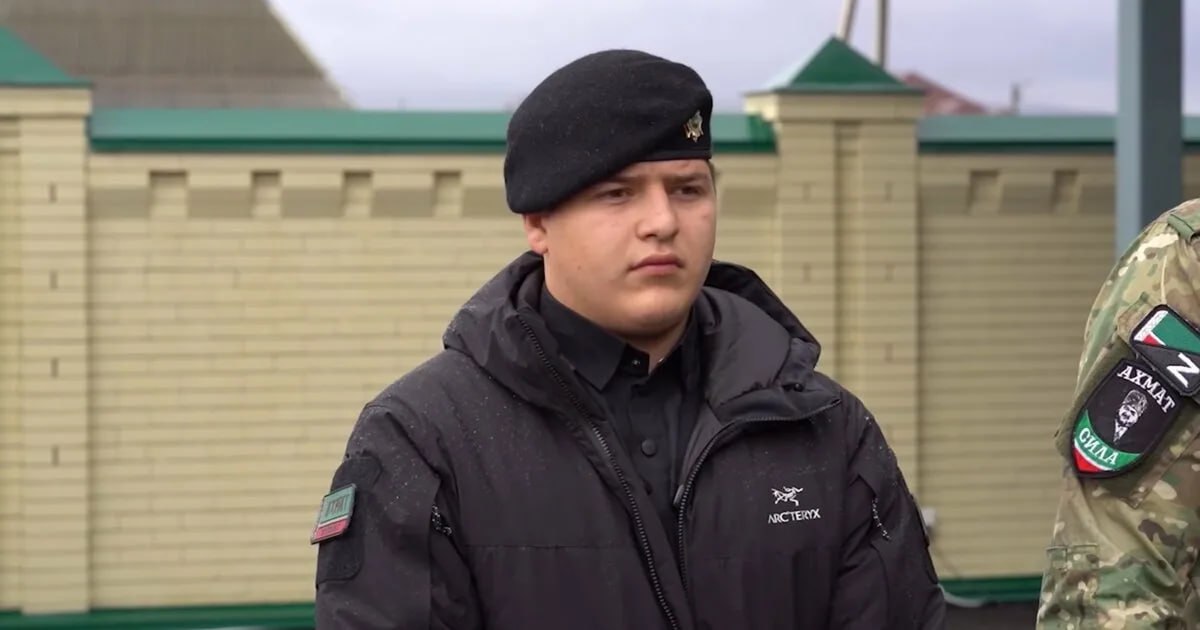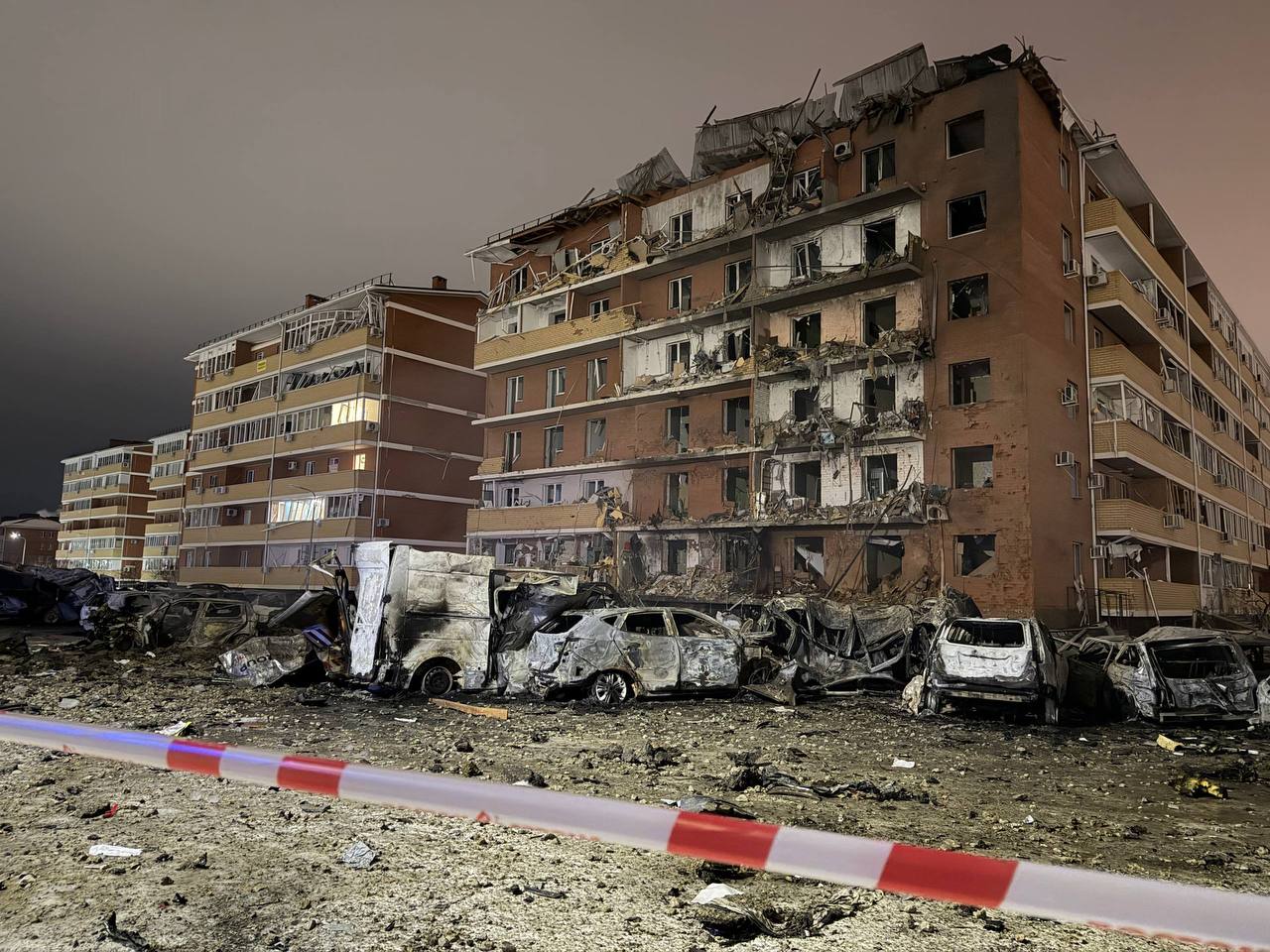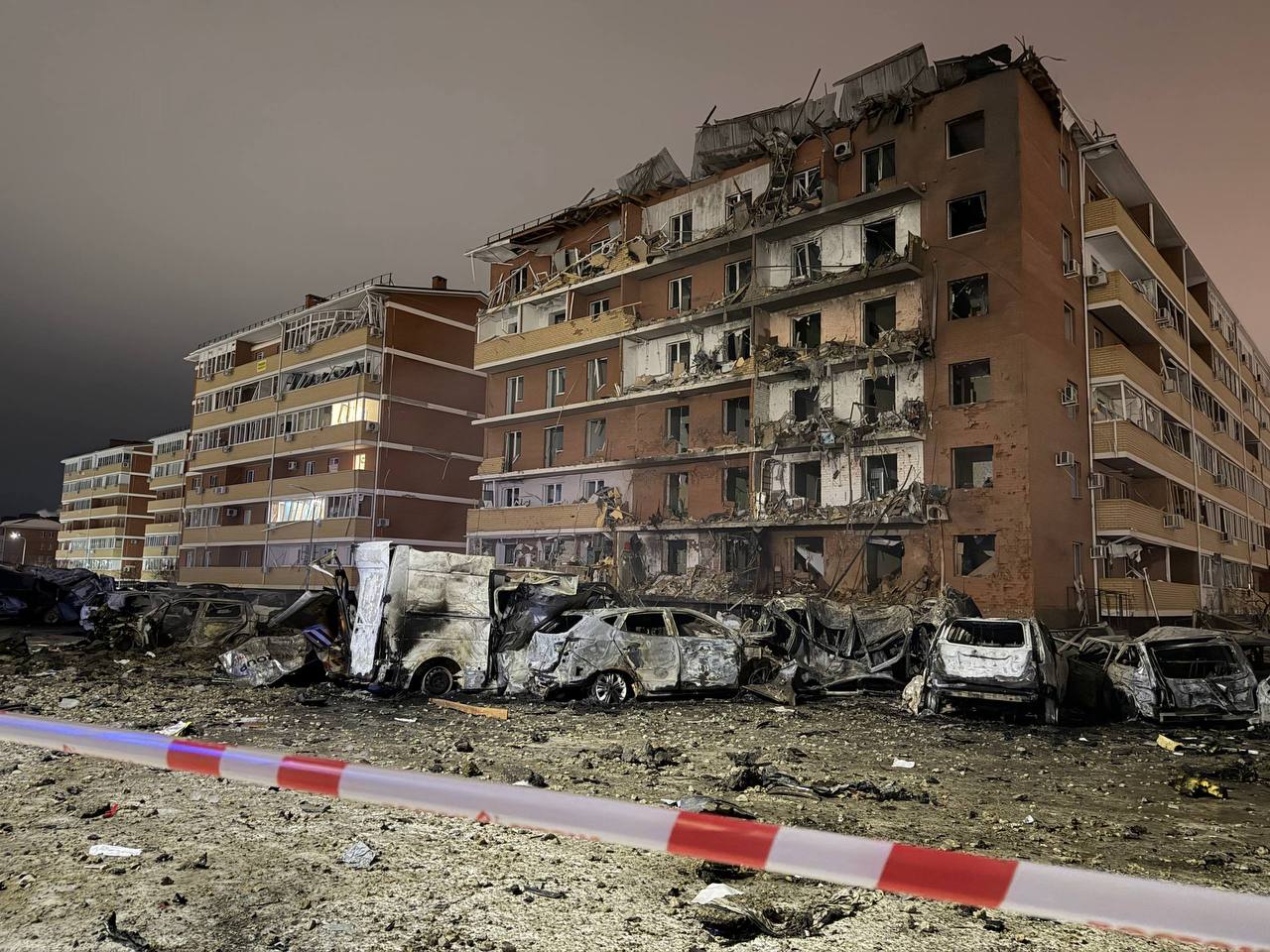The health of Adam Kadyrov, the son of Chechen leader Adam Kadyrov, who was injured in a traffic accident in Grozny, is improving, according to the Agency, citing sources close to the Russian presidential administration and the Chechen authorities.

December 9, 2001
***
On the night of December 9, in the village of Valerik, employees of Russian security forces kidnapped four people. All of them subsequently disappeared without a trace: Ali Abazovich Vadilov, born in 1974, Magomed Khozh-Akhmedovich Edilov, born in 1979, Akhamdi Ismailovich Isaev, born in 1981, and Rizvan Solt-Akhmedovich Suleymanov, born in 1976.
At about two o’clock, masked “security forces” who arrived in two UAZ-452 (“tabletka”) cars burst into the house of Tumisha Vadilova and her husband Abaz. There they, without saying anything to the rest of the family, immediately went into the room where Ali Vadilov was sleeping, lifted him out of bed and carried him in their arms to the exit. His older brother tried to stand up for his younger brother, but was beaten with machine gun butts. The blows were delivered mainly to the kidneys. Then the young man complained for a long time about pain in them and was forced to spend some time in bed.
Ali Vadilov is a disabled person of the 1st group, he was paralyzed from childhood and spent almost his entire life in a wheelchair. His arms and legs were not developed, and without outside help he was unable to even perform natural functions or eat food. His mother looked after him all the time. When she asked why they were taking her son, the kidnappers said that, according to their information, he was a signalman for the militants. But fellow villagers claim that Ali Vadilov, in addition to everything, was also a mentally underdeveloped person. It is unlikely that, at least for this reason, he could be useful to the participants of the WF of the ChRI.
For the relatives, who were aware of the inability of the kidnapped person to care for himself, it was absolutely clear that if he was subjected to beatings and torture, he would physically not endure it and would die. Therefore, they began searching for him early in the morning. We contacted the military commandant's offices of the Achkhoy-Martan and Urus-Martan districts, the prosecutor's office and the FSB, the temporary and permanent police departments. However, no trace of him was found anywhere. None of the official Russian security agencies admitted that the “operation” in Valerik was carried out by their employees. Ali Vadilov disappeared. As of the end of July 2008, his whereabouts had not been established. Six and a half years later, Tumisha Vadilova again turned to Memorial Human Rights Center.
Magomed Edilov is a resident of Grozny. In the village he lived with relatives at the address: Aslanbek Sheripov St., 38. At about the same time, armed people in camouflage uniforms and masks arrived at the indicated house, as in the first case, in two “tablets”. The kidnappers spoke Russian without an accent. They burst into the premises and, without explaining their actions in any way, captured Magomed Edilov. After beating him in front of his family, they took Magomed out into the street and took him to an unknown direction. As of 2006, his whereabouts remained unclear.
Perhaps the same “security officials” in the same UAZ cars with missing license plates arrived at the house at the address: st. Aslambek Sheripov, 101. There they captured Akhamdi Isaev and his cousin Rizvan Suleymanov. The latter lived permanently in the regional center of Achkhoy-Martan and only came to visit the day before. Having discovered him in the house, the kidnappers contacted someone on the radio, addressing him with the call sign “Sedoy”, and asked what should they do with the second one? The order came to take him too. Akhamdi Isaev and Rizvan Suleymanov were beaten. Rough actions and insults were allowed towards others who were in this house. Including children. After this, the kidnappers took the young people out of the house and left with them. Relatives can only guess about the motives for detaining these people. Neither one nor the other took part in hostilities. They immediately contacted law enforcement agencies, but were unable to establish who kidnapped Akhamdi Isaev and Rizvan Suleymanov and where they were then taken. They are both listed as missing.
On December 21, 2001, the prosecutor's office of the Achkhoy-Martan district, after checking the facts stated in the statements of relatives of people taken away from the village of Valerik, opened one criminal case under No. 27056 for all three episodes. This was indirect evidence that all the crimes were committed by one and the same group of “security officials”. However, just two months later – on February 21, 2002 – it was suspended.
Ali Vadilov's relatives went to court over the inaction of the prosecutor's office, and then filed a complaint with the European Court of Human Rights.
***
At 2 o'clock in the morning, masked Russian security forces burst into the house of the Dukuzovs, who lived at the address: Urus-Martan, Titov St., 112. They didn't introduce themselves. They asked the name and surname of the homeowner, Khozh-Akhmed Umarovich Dukuzov. He identified himself. Then the military said they were taking him away. Khozh-Ahmed's wife, Kulsum, intervened. She started asking where and why they were taking her husband. One of the security forces silenced her with a blow from the butt of a machine gun. They then taped her mouth shut; they did the same with the Dukuzov children. They were taken to her brother-in-law's house, located in the same yard. There, everyone's hands and feet were tied. A few minutes later there was an explosion. Later it turned out that the military blew up Khozh-Akhmed’s house.
In the morning, Kulsum began to dismantle the ruins of her house, believing that her husband had been taken away by the military during the night after his arrest. She found his corpse in the ruins of the house. It turned out that the security forces left the tied up Dukuzov in the house and blew up the building. On the fact of the murder of her husband and the bombing of the house, the widow applied to the prosecutor's office of the Urus-Martan district with a request to initiate a criminal case only on March 29, 2002. Human Rights Center “Memorial” does not have any other information.
***
At approximately 2.30-3.00 in the village of Alkhan-Yurt, federal forces carried out a “cleansing operation”. They detained local residents: Musa Akhmedovich Yunusov, born in 1948, and his nephew Lom-Ali Umarovich Yunusov, born in 1982. Both lived on Gagarin Street in houses separated from each other by a river flowing through the village. On December 14, their corpses were found near the village of Goyty.
Up to 25 people were involved in the detention of Lom-Ali Yunusov. They arrived in Ural and UAZ vehicles and several armored personnel carriers. Upon entering the house, nothing was explained. First of all, they grabbed the young man, and then they started robbing him. They tore off the women's gold jewelry and then took them to a house under a canopy. The children were also brought here. The women were tied up and their mouths taped shut. They laid the children on the floor, threw pillows and mattresses on top of them. After this, the military loaded the most valuable property onto the cars, took the family’s personal documents and left. In addition to the loot, they took Lom-Ali Yunusov with them. About five minutes later there was a powerful explosion. The large house in the courtyard was completely destroyed - as if it had been cut off from its foundation. About 30 seconds after the first explosion, a second one was heard. It turns out that the military also mined the empty house of Uvais Khazuev, the Yunusovs’ neighbor. The blast wave damaged many houses in the surrounding rural areas. Even in the village administration building, which was located 700 meters from the scene of the incident, glass flew out. The house under the canopy survived only by a miracle. The women inside were untied by a relative who came running at the sound of the explosion.
In the house of Musa Yunusov, the same thing happened again as with his nephew. Except that the military did not blow up the house. After the robbery, they set it on fire. But the fire did not have time to spread; it was extinguished, and part of the building survived. The Russian “siloviki” left with Musa Yunusov and the property stolen from him.
On the morning of December 9, relatives of the abducted people went to the head of the village administration. He promised that he would go to the regional center, the city of Urus-Martan, and try to organize searches in military units and in places where security forces were stationed. Without waiting for him to return from there, they themselves went to Grozny, where they drew up and submitted applications to the FSB and the prosecutor's office. We visited the office of Vladimir Kalamanov's bureau. They tried to appeal to the civil authorities of the republic, but no one wanted to receive them in the government building. Then the relatives of Musa and Lom-Ali Yunusov visited the television studio, where they met with the editor-in-chief and deputy director. Two operators were sent to Alkhan-Yurt. In the evening of the same day, republican television showed a short story filmed at the crime scene. Representatives of Russian law enforcement agencies have never admitted their involvement in the capture of the Yunusovs.
***
Passengers of the RAF minibus, returning from Chechnya to Ingushetia along the Rostov-Baku highway, were subjected to bullying and arbitrariness by the military. The 60 km long journey took the minibus driver about five hours and cost people a lot of nerves due to frequent stops at numerous checkpoints, quibbles over trifles and outright extortion from the military.
When leaving Grozny at the Chernorechensky checkpoint, all passengers (the majority were women and children) were forced to get out of the car under the pretext of checking documents and searching their belongings. Everyone was kept in the cold for half an hour. The driver later explained that the military did this on purpose, in retaliation for his refusal to pay them more than the established fare.
At other posts there was the same picture. In response to the women’s indignation, the military declared: “That’s it, the car won’t go any further,” and only after paying a bribe were they allowed to continue. At the checkpoint near the village of Shaami-Yurt, the driver was forced to pay 100 rubles, and through the Kavkaz-1 checkpoint they let him through for 50 rubles.
From the book “People Live Here”, Usam Baysaev, Dmitry Grushkin, 2006.



